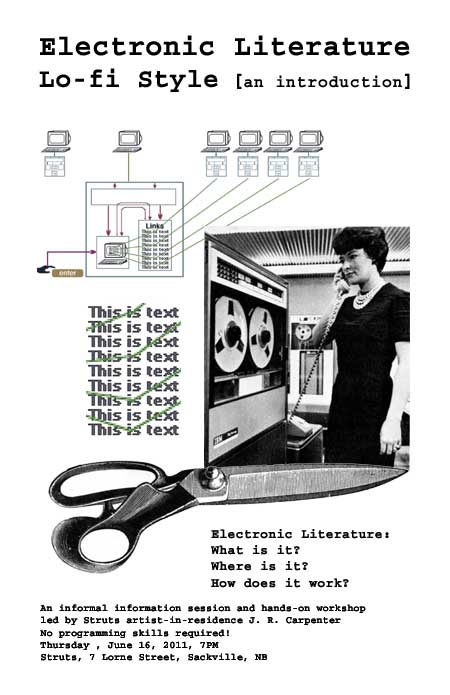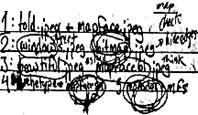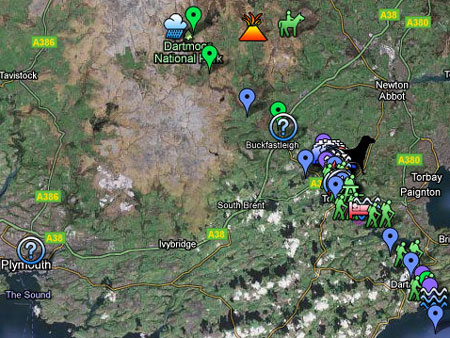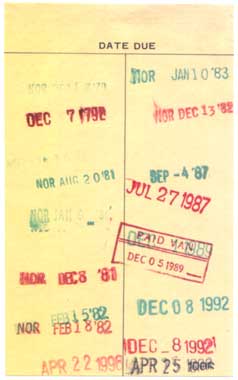I will present a workshop tomorrow at In the Regions of Utopia, the second symposium of the Imaginaries of the Future network, taking place in Newcastle-Upon-Tyne, UK, 28-30 June 2015.
This workshop facilitates an interrogation of place-based identity by calling into question the persistent notion that ‘home’ is necessarily a place. Further, this workshop challenges the inward-facing tendencies of autobiography by employing a computer program to create a collectively authored quasi-autobiographical narrative which is at once dynamic, inclusive, variable, and provisional.
This workshop begins with an exercise prompted by a quotation from Anne-Marie MacDonald’s novel As the Crow Flies (2003), in which the author suggests we may come from events rather than places:
If you move around all your life, you can’t find where you come from on a map. All those places where you lived are just that: places. You don’t come from any of them; you come from a series of events. And those are mapped in memory. Contingent, precarious events, without the counterpane of place to muffle the knowledge of how unlikely we are. Almost not born at every turn. Without a place, events slow-tumbling through time become your roots. Stories shading into one another. You come from a plane crash. From a war that brought your parents together.
With this example in mind, participants are invited to complete the sentence: “I come from…” with statements pertaining to events rather than places. “I come from a plane crash.” “I come from a war that brought my parents together.”
Participants are then invited to complete additional stock autobiographical sentences in ways which challenge the primacy of place. For example, the sentence: “I was born…” may describe a time rather than a place. “I was born on the night shift.”
Each question is asked several times, allowing participants’ responses to riff off each other.
The responses are entered into a computer program as they are given. This program randomly selects one response to each statement and outputs a story. Individual participants’ responses are thereby shuffled into a collectively authored quasi-autobiographical narrative which may be endlessly refreshed. The notion of autobiographical veracity further undermined by leaving key gender signifiers such as Mother/Father to computational chance.
Participants will be invited to speak these narratives aloud in various ways (separately, as a group, in a round). As we consider what sort of stories emerge from this generative, variable, collective, event-driven mode of autobiographical authorship, we will propose new questions by altering the source code. How does our story shift if the statement “I wish…” is changed to “I need…”? How does our conception of regionality or locality shift if we think in terms of coming from shared events rather than places? As we experience events unfolding in real time online, how might we come from a plane crash in Manhattan, or a protest in Hong Kong, or the Occupy movement?
The source code of the AUTO_MATIC_BIO_GRAPHIC program is based on a 1k story generator created by Nick Montfort in 2008. Examples of stories generated by a previous iteration of the AUTO_MATIC_BIO_GRAPHIC program were included in my print book GENERATION[S], published by Traumawien in 2010. Feel free to download the source code and replace the variables with your own life events.



 Early Saturday morning, March 28, 2009, I packed a suitcase full of books and headed down to the
Early Saturday morning, March 28, 2009, I packed a suitcase full of books and headed down to the